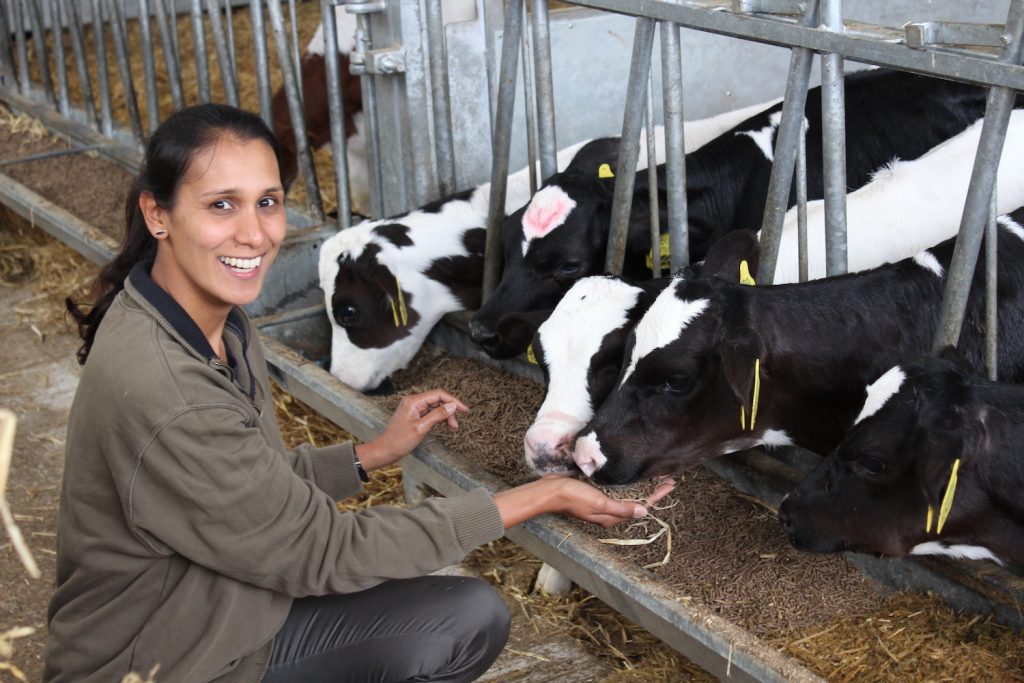Prepare now for winter calf care, specialist says
9th November 2020
As the first frosts arrive, preparing for winter becomes a priority. Just as cars need preparing for harsher driving conditions, so calves need extra energy and an immune system booster if they are to thrive through the colder months.
As the first frosts arrive, preparing for winter becomes a priority. Just as cars need preparing for harsher driving conditions, so calves need extra energy and an immune system booster if they are to thrive through the colder months.
“Calves feel the cold and can suffer setbacks as their immune and respiratory systems are challenged,” says Cargill’s youngstock specialist for the UK and Ireland, Bianca Theeruth (pictured).
For every 1°C drop in temperature below 15°C, which is the lower critical temperature for calves up to three weeks old, maintenance energy requirement increases by 1 per cent. “So, unless this extra energy is provided, the calf uses more of its dietary energy for living and less for growth and immune functions.”
Calves above three weeks old have a lower critical temperature of 10°C as their rumen is more developed, they have higher dry feed intakes and some internal fat stores than their younger cohorts. “But if temperatures fall below this critical temperature, they too will divert dietary energy to maintenance.
“So as temperatures drop, the calf’s energy requirements for maintenance, growth and immunity increases.”
The extra nutrients will come from a high-quality calf starter, fed ad lib, and where fresh water is available alongside along with straw placed in racks above the ground. “In younger calves, starter feed will also provide the extra energy that may be required,” says Ms Theeruth, adding that the proviso is that milk replacer rates are not exceeded, to avoid supressing the calf’s interest in dry feed.
She also advocates enhancing the diet to support the calf’s immune system through winter. “The carefully balanced mixture of powerful antioxidants in Pulmatop will support the calf’s immunity and respiratory system. It also includes organic selenium and rumen-protected vitamin C to support the immune system and clay minerals which support digestive function and provide intestinal protection, plus plant-based essential oils.”
Launched by Cargill in 2019, it is a pelleted product that can be sprinkled onto or mixed in feed and fed daily for 15 consecutive days. Under periods of additional challenge feed rates can be doubled and an additional five days of feeding can be beneficial.
“Calves face challenges through winter at a time when their own immune system is under-development. My advice to farmers is to prepare well now. Just a bit of fine tuning, before temperatures fall into winter, will help to keep calves healthy and on target, so they leap, rather than fall, into spring.”

